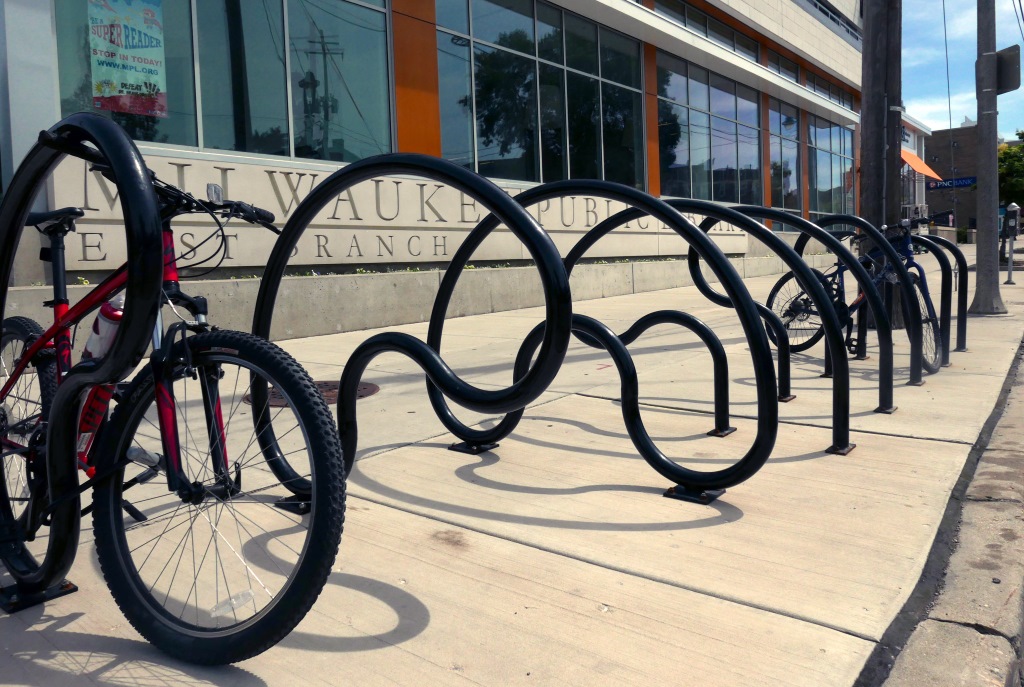How to Go Car-Free
All the city news you can use.
Every day at The Overhead Wire we sort through over 1,500 news items about cities and share the best ones with our email list. At the end of the week, we take some of the most popular stories and share them with Urban Milwaukee readers. They are national (or international) links, sometimes entertaining and sometimes absurd, but hopefully useful.
Going car free in middle America: In most of the United States, people own cars and use them for a large number of their trips. But some have eschewed the car for a different lifestyle free of car payments and gas fill-ups. Angie Schmitt shares how they do it including choosing carefully where you live so you can walk and bike most places though safety is still a big concern. The E-bike has also been a game changer for many, allowing further travel with less effort. (Angie Schmitt | Vox)
The 15 minute conspiracy theory: The 15 Minute City, a development and design idea first proposed by Carlos Moreno similar to a number of other urban planning trends such as walkable urbanism and transit oriented development has been caught up recently in the conspiracy theory spin cycle. British writer Jonn Elledge believes that if you mix worries about large global organizations with unfounded fears someone will take away your car and ban you from leaving your neighborhood, this is what you get. (Jonn Elledge | New Statesman)
Wales rethinks road expansion in climate change era: 35 of 50 road projects in Wales were halted after they were tested for climate impacts as part of a larger strategy to think long term. The country was also forced to rethink investments after funding from the UK government has dwindled. It’s likely the cancellations will lead to more active transportation and longer term thinking on climate change. (Steven Morris | The Guardian)
Is remote work costing Manhattan?: Data analyzed by Bloomberg News reporters shows that remote work costs the city $12B a year in spending office workers would normally make if they were in offices downtown five days a week. That spending seems to be happening elsewhere in the city outside of Manhattan with more people staying close to home, but the impact where offices are located worries city officials who believe it will affect transit funding and the tax base. (Emma Court, Donna Borak, Linly Lin, Kyle Kim | Bloomberg)
Quote of the Week
Water fountains have long embodied enduring tensions around public things and their politics and ecologies, around promises of purity and fears of contamination. Fountains can tell us much about a society’s attitudes towards health, hygiene, wealth, virtue, and taste, and about its understandings of municipal and epidemiological responsibilities.
–Shannon Mattern in Places Journal discussing water fountains and their place in society.
This week on the podcast, we’re joined by Dr. Dorina Pojani, associate professor of Urban Planning at the University of Queensland, to talk about her book, “Planning for Sustainable Transport in Southeast Asia: Policy Transfer, Diffusion, and Mobility
Want more links to read? Visit The Overhead Wire and signup.
Urban Reads
-
Congestion Pricing Cuts Air Pollution in New York City
 Dec 14th, 2025 by Jeff Wood
Dec 14th, 2025 by Jeff Wood
-
We Think We Love to Drive. But Do We Really?
 Dec 7th, 2025 by Jeff Wood
Dec 7th, 2025 by Jeff Wood
-
Can Scott Wiener Tackle America’s Housing Crisis?
 Nov 23rd, 2025 by Jeff Wood
Nov 23rd, 2025 by Jeff Wood





















